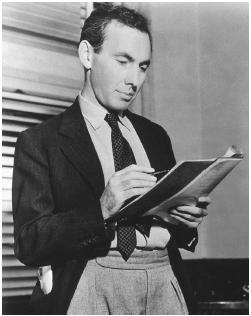Zoltan Korda (Zoltan Kellner)

As a young man, Zoltan Korda went to work with his brother Alexander in their native Hungary and in the United Kingdom for his London Films production company. He functioned as a camera operator; for a time he worked in film editing and as a screenwriter. In 1918 and 1920 in Hungary, he directed two silent film shorts and a feature-length silent film in Germany in 1927. In London, he made his English-language directorial debut with the sound drama Men of Tomorrow (1932). He gained wide respect for the adventure film Sanders of the River (1935), starring the American actor Paul Robeson and Leslie Banks. The film proved a significant commercial and critical success, giving Korda the first of his four nominations for “Best Film” at the Venice Film Festival. Korda and Robert Flaherty won the Venice festival’s “Best Director” award for Elephant Boy (1937). A former cavalry officer in Hungary, Zoltan Korda made a number of military action/adventure films, many of which were filmed in Africa or India. As someone with a social conscience, his film projects often reflected that perspective when dealing with the indigenous peoples of the British Empire. Of his directorial efforts, 1939’s The Four Feathers, starring Sir Ralph Richardson, is considered his greatest cinematic accomplishment. Of lasting significance, the film was nominated for the Palme d’Or at the 1939 Cannes Film Festival. In 2002 it was presented again by the Festival committee in retrospective.
In 1940, Zoltan Korda joined his brother Alexander in Hollywood, Los Angeles, California. Working through United Artists, he served as executive producer of The Thief of Bagdad. Zoltan Korda spent the rest of his life in southern California. He made another seven films, including the acclaimed 1943 World War II drama, Sahara (1943), for which he wrote the screenplay. It starred Humphrey Bogart. His films included A Woman’s Vengeance (1947) with Charles Boyer and Jessica Tandy and the anti apartheid film Cry, the Beloved Country. Poor health, brought on years earlier from a battle with tuberculosis, forced Zoltan Korda’s retirement in 1955. He died in 1961 in Hollywood after a lengthy illness. He was buried in the Hollywood Memorial Park Cemetery.
Born
- June, 03, 1895
- Túrkeve, Hungary
Died
- October, 13, 1961
- USA
- Los Angeles, California
Cemetery
- Hollywood Forever Cemetery
- Hollywood, California
- USA

